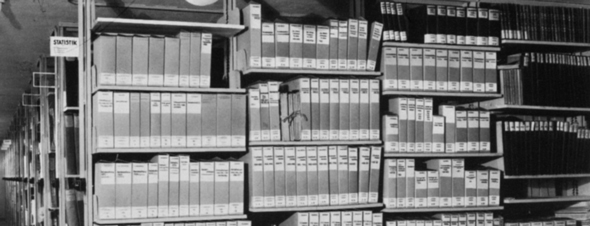
Crisis and reorganization: the genesis of the Basel Model of economics (1918–1945)
The optimistic atmosphere at the end of the First World War was followed in the 1920s by a personnel crisis in the field of economics in Basel.
As part of the shift in making the Swiss Economic Archives an autonomous institution, the university initially created a new professorship for statistics, attached to economic sciences. It was filled in 1921 by Fritz Mangold (1871–1944), who also took over the management of the archive. Mangold was well suited to the broad profile of economics in Basel. As a former government councillor in Basel, he was a specialist in social policy issues and understood statistics not narrowly as a method but, in the tradition of the state sciences, as a broad form of social analysis for addressing questions in demographics, economic policy, sociology, and social statistics (or in the terminology of the time, “moral statistics”).
Over the course of the 1920s, however, the field of economics in Basel experienced a temporary crisis, with difficulties manifesting themselves in both chairs, albeit for different reasons. Because Julius Landmann was not habilitated and was appointed largely in response to pressure from banking and industrial circles, he repeatedly faced internal hostility in the faculty after taking up his position in 1909 – some of which was motivated by antisemitism and xenophobia. This unsatisfactory situation worsened after the end of the First World War when Landmann, as a federal expert, helped draft the legal basis for the introduction of a stamp duty that would have primarily affected banking and insurance circles. Although the new tax failed to pass the parliamentary hurdle, Landmann’s involvement led to the loss of his networks in the banking sector. Increasingly isolated and embittered, he sought a new position at a German university after 1920. After several failed attempts, he finally succeeded in 1927 when he was appointed by the University of Kiel to the prestigious Institute for Maritime Commerce and Global Economy.
The following year, economics in Basel lost Robert Michels, its second pivotal figure. Michels, whose socialist engagement had cost him a career at a German university, never truly settled in Basel as Landmann had done; he found the environment in Basel and German-speaking Switzerland too sympathetic to Germany. His social network in Switzerland was modest; he only maintained close friendships with Vilfredo Pareto, who taught in Lausanne. During his time in Basel, however, Michels expanded his connections to Italy and became a staunch supporter of syndicalism and corporatism, and from 1920, of Italian Fascism. While still a professor in Basel, in 1926 he accepted a teaching assignment at the University of Rome, personally sponsored by Mussolini. Two years later, he was appointed to the University of Perugia, a fascist elite institution that only admitted registered members of the fascist movement, thus turning his back on the University of Basel for good.
Hans Ritschl (1897–1993) was appointed as Michels’ successor in 1928. Ritschl, likewise following in the tradition of the historical school, was distinguished like Michels by a broad foundation of sociological knowledge. Sociology also gained an enhanced institutional status, with the chair now titled “economics and sociology” (instead of “economics and statistics”). In the field of economics, Ritschl worked on economic policy issues. He was sympathetic to socialist ideas, distancing himself from purely market economy approaches, yet he also maintained a critical distance from the planned economy model of the Soviet Union. Ritschl advocated for extensive state control of the economy (the model of a corporatist “managed economy”) and supported a significant expansion of the public sector (including mining, electricity, and transportation). With these views, he was among the early proponents of Keynesian economic policy. Ritschl also regularly lectured on political and financial sociology. His time in Basel lasted almost one and a half decades. Although he did not engage in party politics in Switzerland, he appears to have had sympathies for National Socialism. While not a party member, he accepted a position in 1942, during the war, at the staunchly National Socialist Reich University of Strasbourg, established by the German occupying forces. In Basel, the vacant position was filled by Valentin Fritz Wagner (1895–1959), a student of Landmann’s, who had completed a habilitation in Basel in 1937 and served as an editor of the Swiss Zeitschrift für Volkswirtschaft und Statistik, among other roles. However, Wagner’s academic career was marred by recurring serious illnesses, which forced him to retire early in 1957.
Landmann’s departure in 1927 led to the appointment of Edgar Salin (1892–1974) in Basel. For the next three and a half decades until his retirement in 1962, Salin was the dominant figure in economics in at the university.


